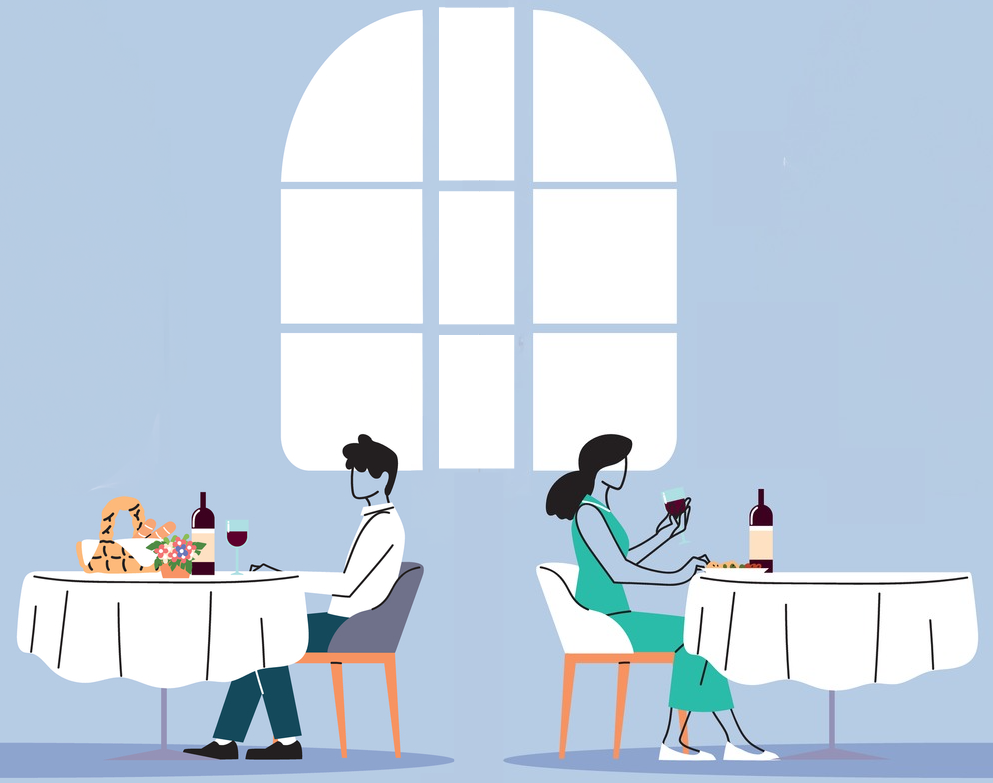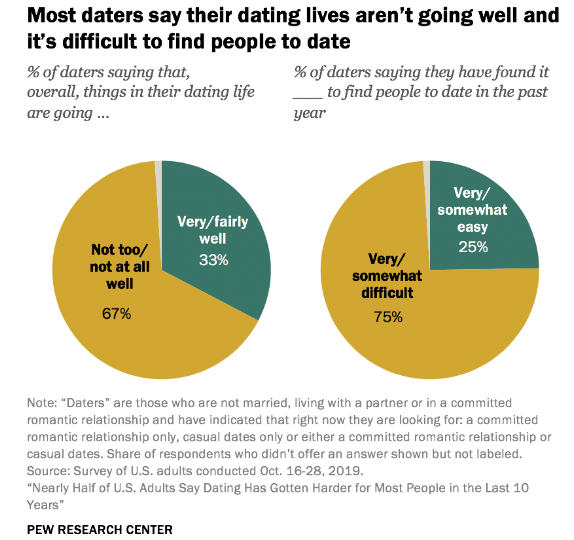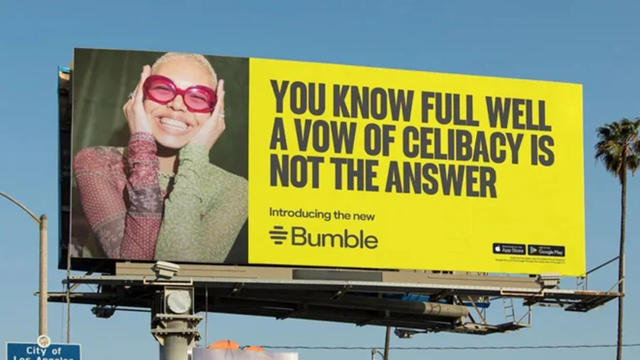Newsletter May 16, 2024
Why Nobody Likes Dating Now

At last week’s Bloomberg Tech Summit in San Francisco, Bumble founder Whitney Wolfe Herd explained how AI would become more integrated into the date search process. “There is a world where your dating concierge could go and date for you with other dating concierge[s] . . . and then you don’t have to talk to 600 people,” she said. It sounds utterly dystopian. AI chatbots chatting up other bots to forge connections for their human counterparts.
Social media is awash in stories of awful dating experiences. I cannot think of any of them that would be solved by artificial intelligence doing more of the actual dating. Singles are largely pessimistic about the way things are going in dating life. Dating apps are increasingly accused of being part of the problem. Yet, despite the steady stream of negative feedback, most dating app companies have been slow to recognize how much their users hate using them. It’s not entirely their fault. Dating has become more difficult for a host of different reasons, including the rising distrust between men and women.

Women report having less success finding suitable matches, even as romantic options become more easily accessible online. Young women are still interested in relationships, but there seems to be less patience and far more risk aversion. Social media posts identify “red flags” and “icks” for significant, but also highly subjective, dating infractions. More young women talk about the necessity of finding someone who can immediately add value to their lives.
Many young men are finding their formative experiences have done little to prepare them for relationship success in 2024. Young women today expect young men to contribute in ways many of their fathers never did, if they even had fathers to model this behavior in the first place. Nearly one in four men have grown up without fathers, leaving a huge emotional hole in their lives. Even young men raised in traditional two-parent households are left with imperfect models of domestic partnership—with mothers who carried much of the domestic and emotional workload for their families. There are few places for young men to acquire these skills and waning opportunities to gain first-hand relationship experience. I’ve argued previously that male friendships too often do not equip men to succeed in romantic partnerships.
A recent survey we conducted found that young men begin dating much later than they used to. Close to half of Gen Z men report not having had a significant other at any point during their teenage years while four out of five men over 65 say they did. Online, the models for male dating behavior are worse, featuring misogynistic posts about being an alpha male or advice from pick-up artists about ways to exploit female psychology.
In one important way, young men and women are confronting the same problem in dating: uncertainty. The purpose of dating is less clear than it once was. Marriage is less of an immediate goal for many young people, and parenthood is much more of an open question. A recent Pew poll found that young men are more interested in becoming parents than young women. And young women express greater distrust of marriage, an institution they believe furthers the interests of men at the expense of women.
The process is more confusing as well. Dating rules are less well established and more subjective, especially online. Many women are forced to repeatedly establish boundaries for the strangers they are dating. In an interview with Time, a 26-year-old young woman explained: “I find myself constantly setting boundaries due to the normalization of hookup culture by apps.”
Bumble seems to be doubling down on technology-focused solutions while ignoring the growing gender divide emerging in American culture. The company’s recent billboard campaign aimed at encouraging women not to give up on dating has been widely condemned on social media. One billboard message, “A Vow of Celibacy is Not the Answer,” provoked considerable blowback. On her YouTube channel, Valerie Emanuel called the billboard message “pathetic and desperate” and “offensive to women.” TikTok user Chey suggested that the ad campaign was “incredibly tone-deaf” and should have targeted men. She asked why the ad team at Bumble ignored the “cultural tensions” between men and women: “Why should women even want to date men?”

Technology cannot solve problems that are rooted in social or cultural differences. But it can create new ones. Invariably, the people who will be most attracted to these AI chatbots, whether for friendship or romantic companionship, are the very people who would most benefit from social experiences with real people and who are most averse to them. I don’t believe AI will enslave us or develop robots to destroy humanity; rather, my fear is that it will reduce our capacity and desire for human connection. In fact, it’s already happening. Replika, an app that supplies digital romantic partners, had 10 million users in 2022, a 35-percent increase over the previous year.
There is no algorithmic secret sauce that will make online dating better, but there are a lot of ways to make it worse. Today, more users treat it as a necessary evil. But it wasn’t that long ago that people heralded the incredible potential of online dating. Today, a growing share of single young women and young men are deciding that romantic relationships or marriage might simply not be worth it.
On social media, more women fed up with negative dating experiences are embracing the 4B movement. Started in South Korea, the movement aims to challenge the country’s patriarchal culture by encouraging women to avoid getting married, having children, dating, and sex, words that in Korean language all begin with the letter “B.” In the US, the 4B movement serves as a rallying cry, but, as more young women boycott dating and men in the process, it may transform into a lifestyle.








